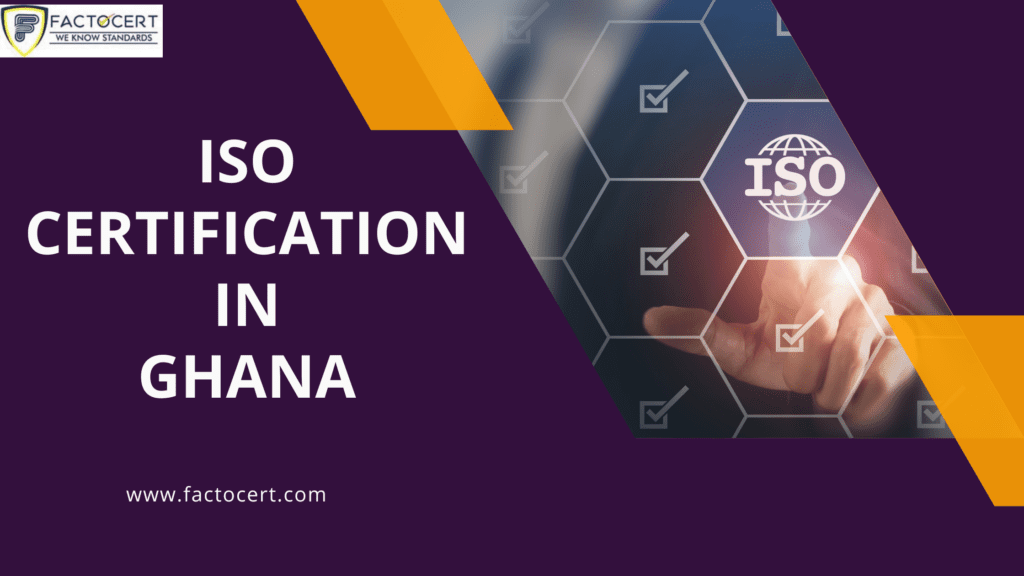ISO certification in Ghana, such as ISO 9001 for quality, ISO 14001 for the environment, and ISO 45001 for safety, improves the tobacco industry by enhancing operational efficiency, ensuring product quality, minimizing environmental impact, and improving workplace safety. It speeds up processes, demonstrates a commitment to standards, and boosts reputation in global marketplaces. However, certifications do not mitigate the moral ramifications of using tobacco products or alleviate the health hazards associated with their use.
What are the advantages of ISO certification in Ghana for the tobacco industry?
Obtaining ISO certification can benefit the Ghana tobacco business in various ways despite the industry’s problematic nature. The ISO (International Organization for Standardization) accreditation process establishes globally accepted standards for many aspects of business operations. The following are some potential benefits of ISO certification for the tobacco industry:
Quality Management System ISO 9001:
The focus of ISO 9001 certification is on systems for quality control. This accreditation can ensure that the manufacturing processes, product quality, and customer satisfaction within the tobacco sector match predefined norms. It helps to reduce errors, streamline operations, and increase overall efficiency.
Environmental Management under ISO 14001:
This accreditation places a strong emphasis on environmental management systems. Despite the intrinsic nature of the tobacco industry, achieving ISO 14001 certification can demonstrate a commitment to waste management, reducing the industry’s carbon footprint and limiting its negative effects on the environment.
Occupational Safety and Health (ISO 45001):
This certification covers the occupational health and safety management systems. The tobacco industry uses several potentially dangerous products in the course of its production. Thus, implementing ISO 45001 standards can contribute to a safer working environment, reduce accident rates, and protect employee health.
Supply Chain Management:
ISO certifications (such as ISO 28000 for supply chain security) also address supply chain management. This is beneficial because it ensures the safety and security of the entire supply chain, which is necessary for the tobacco industry’s operations, from the acquisition of raw materials to their distribution.
International Trade and Market Access:
The industry can enhance its standing and competitiveness in the international market by obtaining ISO certifications. By reassuring customers and authorities that a business is abiding by global norms, certifications can help trade agreements and market access.
It is noteworthy that the tobacco industry has significant challenges with legislative constraints, public health concerns, and ethical dilemmas. While ISO certifications can improve operations, they don’t address the underlying issues surrounding the health risks associated with tobacco products or the concerns raised by society about their use.
Furthermore, some countries may have regulations restricting or forbidding the kinds of certificates the tobacco business can receive, given the disputed nature of tobacco usage and its possible health implications.
In the end, ISO certificates might be beneficial from an operational perspective. Nevertheless, they don’t deal with the more important health and societal concerns about the products made by the tobacco industry.
How to become an ISO-certified business in Ghana:
To become ISO-certified in Ghana, you must take a few important steps:
Choose the ISO Standard That Applies:
Select the ISO standard or standards applicable to your tobacco industry business, such as ISO 9001 for quality management, ISO 14001 for environmental management, or ISO 45001 for occupational health and safety.
Examining the Difference:
Conduct a gap analysis between your existing systems, procedures, and processes and the requirements of the chosen ISO standard or standards. Ascertain what has to be enhanced or aligned to meet the standard’s requirements.
Produce Written Materials:
Make and place the necessary policies, procedures, processes, and documentation to adhere to the ISO standard(s). This could mean creating a quality manual, establishing roles and responsibilities, conducting risk analyses, and setting objectives.
Guidance and Performance:
The new procedures and processes outlined in the ISO standard(s) should be taught to employees through training. Put the changes into practice and ensure that every employee complies.
Internal Review
Conduct an internal audit to assess the effectiveness of the deployed systems and identify any discrepancies or possible areas for improvement.
Corrective Actions:
Address any non-conformities found during the internal audit by taking corrective action to improve processes and solve issues.
External Assessment by the Organization for Accreditation:
Select an accredited Irish certification agency to conduct an external audit. The certification body will review your processes, systems, and related documentation to verify that they comply with the relevant ISO standard(s).
Choice Regarding Certification:
Following a successful external audit, the certification authority will determine whether to grant you ISO certification based on your organization’s compliance with the standard(s).
Continuous Improvement
Following certification, maintain compliance by conducting regular internal audits, monitoring procedures, and resolving any discrepancies discovered in ensuing audits.
Why Is Factocert the Best Option for Ghanaian ISO Certification?
Factocert is the leading ISO consultant in Ghana. We provide implementation, education, auditing, and registration services and are the top ISO representative issuer in Accra, Kumasi, Tamale, Cape Coast, Ashaiman, and other major Ghanaian cities. We have several different ISO Standards available, including ISO 22000, ISO 9001, ISO 14001, ISO 13485, ISO 17025, and many more.
Factocert is a well-known ISO Certification consulting company in Ghana that provides essential information to organizations. Their suggestions improve the effectiveness of adherence monitoring, audits, and ISO requirements. Factocert assists Ghanaian companies in expediting their certification process, enhancing their operational efficacy, legitimacy, and worldwide competitiveness.
For more information, visit: ISO Certificatfion in Ghana.





